Can staff menu tastings earn a citation? Oklahoma restaurant flagged for straw tests.
Restaurant employees showing up to work recently thought they were taking part in a normal pre-shift educational activity — tasting cocktails and wine to get a better idea of what to suggest to customers for pairing with their meals later — until the restaurant, Mahogany Prime Steakhouse, 145 W Sheridan Ave., was cited over the event, in a move that has caused shockwaves throughout the food and beverage industry.
Now, industry veterans and advocates worry that routine actions considered to be standard practice at restaurants and bars are being targeted by the Alcoholic Beverage Laws Enforcement (ABLE) Commission.
"Straw tests," educational tastings and even visits from wine reps are at risk of causing problems for restaurants under the enforcement of Title 37A O.S. § 6-109, which prohibits the consumption of alcohol by licensees while on duty.
What does the Oklahoma law say?
Lori Carter, assistant director and general counsel for the ABLE Commission, said alcohol in Oklahoma is legislated by the state constitution, as well as state statutes under Title 37A. The problem at hand comes from language in Title 37A.
“Title 37A has a particular section, section 6-109.1, that specifically says, no licensee or employee shall consume or be under the influence of alcoholic beverages during the hours he or she is on duty. And for the purposes of this section, licensees will be deemed to be on duty from the time the licensee first comes on duty until the time the licensee goes off duty at the end of the shift, including any break periods permitted by management,” Carter said.
That particular section of Title 37A has been state law since 2018, when it went into effect. However, industry professionals and advocates, including James Leewright, Oklahoma Restaurant Association president and former state senator, say they've never seen or heard of it being enforced in this way.
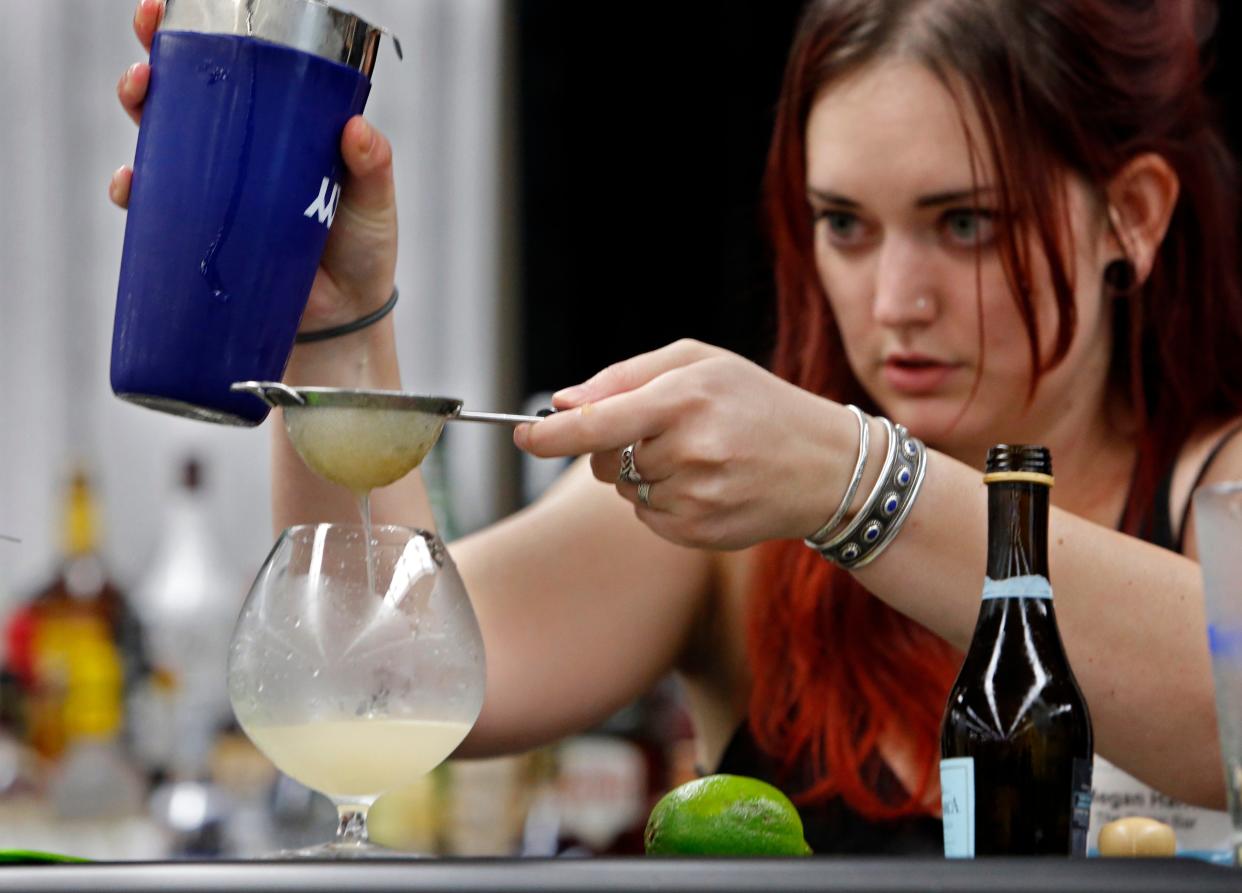
"We work closely with ABLE, and we have always taken the position that ABLE should be there for education and compliance, but not a gotcha, and I believe this, since what we've seen in the last 25 years, this appears to be more of a gotcha," Leewright said.
What happened that caused a violation of the statute?
Carter said the ABLE Commission is doing its job as an enforcement agency and that this particular incident stemmed from a complaint the agency received against Mahogany Prime Steakhouse.
"We are simply trying to enforce the statute. This has nothing to do with a new interpretation that ABLE is taking on this,” she said. "We received a complaint alleging that employees were mandated to consume alcohol and then work their shift immediately following the consumption. We also received information that employees were exhibiting signs of being inebriated."

An ABLE Commission agent visited the restaurant in question on Nov. 17 after receiving the complaint, which alleged "consumption of alcohol on a weekly, almost daily basis [by employees] while on the clock" that was "getting out of hand" and issued a warning to Mahogany, Carter said.
"[The agent] then went back out on Dec. 1 and found the employees there with information ... and they admitted to drinking while they were on duty. They were scheduled to work after the tasting," Carter said.
Carter also said that despite online posts she had seen claiming exorbitant fines had been levied against the restaurant, because the investigation is still active and remains to be heard before an administrative law judge, no fines or regulatory actions have taken place at this time.
“I think there is a lot of misinformation that's out there regarding this. I have seen a couple of Facebook posts or one that's gone viral about a $50,000 fine that was issued for this,” Carter said. “And I just want to be clear that the penalty, if such a violation were to have occurred — now, we are not even at that point yet, I mean this is, for example, a speeding ticket being issued. You know what I'm saying? The court has not adjudicated this, beyond all of this, we, the prosecuting team, has not reviewed it anymore — but, the fine for this is $150 per count, and there were 14 counts issued.”
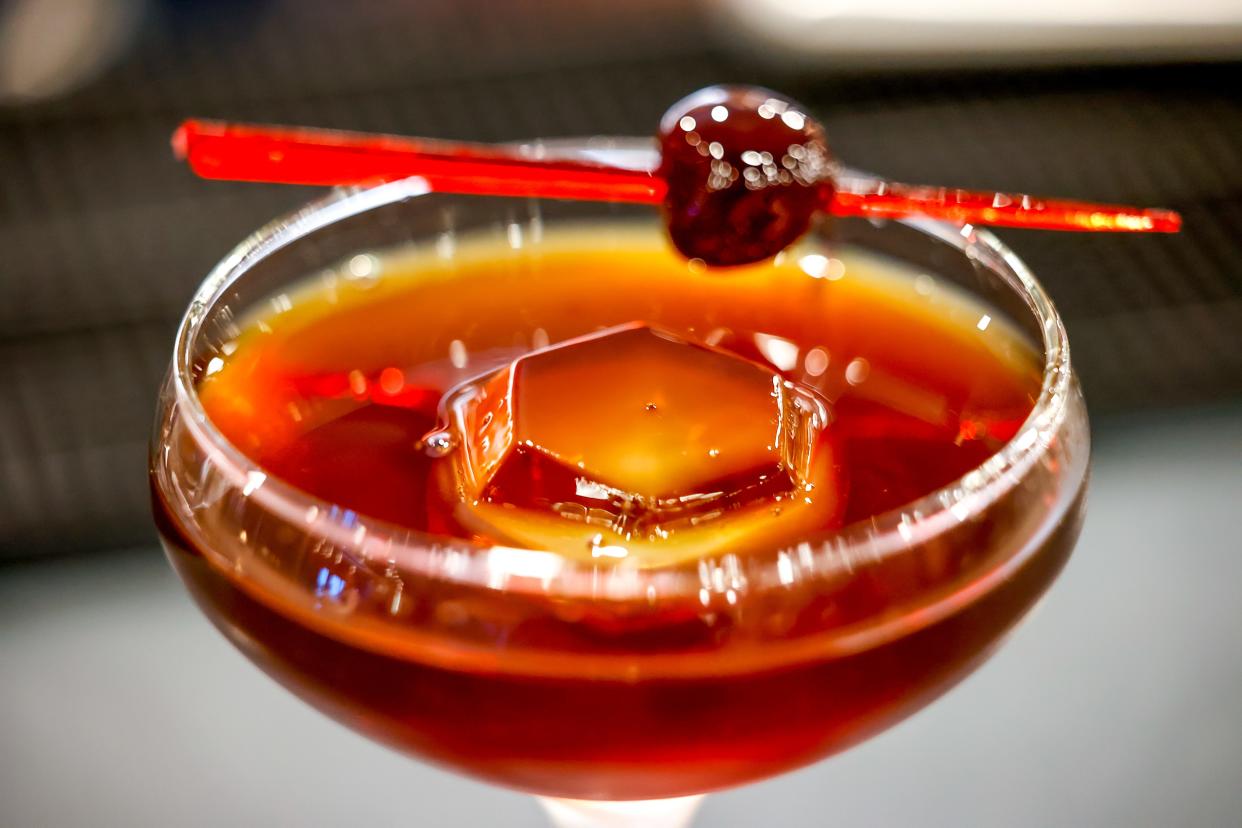
The restaurant's ownership group confirmed that it had received a citation, but had not been assessed any fines at this time, but declined further comment.
Why are restaurants, bars and their advocates so concerned about the situation?
The fact that a restaurant is facing possible fines at all has other restaurant owners, bartenders and advocacy groups like the restaurant association concerned about how restaurants can continue to educate their employees and offer premium service to guests.
"They were having an educational tasting for a certain alcohol, and ABLE says that they cant drink on duty," Leewright said. "Of course, if a restaurant calls in their employees to go through an educational, they're going to be paying them for their time and ABLE is deciding to say if they're getting paid, they're on duty."
Leewright and Colby Poulin, president of the Oklahoma City chapter of the United States Bartenders’ Guild, also said the effect of this particular issue is particularly heightened because it is being faced by an already precarious industry that has been hit with recent closures and continued rising costs. With violations of the law carrying a $150 penalty, along with a potential three-day license suspension, the results could be detrimental whether assessed against an individual or a business.
More: Why are so many OKC restaurants and breweries closing, and should we be worried?
"In an industry that they've seen a dramatic increase in labor costs, and food, and all their inputs, alcohol, whatever it may be and then you have supply chains issues on top of it, and their margins are already so small. It can be devastating," Leewright said.
Industry veterans also believe this instance could lead to restaurants and bars being cited for a number of other commonplace occurrences such as reps bringing in product for sampling to help management build wine lists and even bartenders doing straw tests to sample a negligible amount of a cocktail before serving to a guest, much like a chef would taste a dish before service.
Poulin said straw testing as a practice is universal not just across Oklahoma, but throughout the country and even around the world for bartenders.
"We're gonna straw test that drink because we want to make sure that drink is not bad. We want to make sure we have the right balance of flavors that are coming through and it's not off-putting with sours, or it's not too boozy or it's not too sweet," said Poulin. "Straw testing is important not only for the guest purposes, but because we want to make sure that we're not wasting product, as well."
Poulin said if a drink is not correct before it reaches a guest and it gets sent back, that becomes a loss for the bar or restaurant. He also said that in an hour of bartending, he may do one to three straw tests, and based on his own math that would mean he's ingesting less than a tenth of an ounce of liquid from cocktails.
However, Carter confirmed that employees doing straw tests of cocktails are considered in violation of the state law.
"I think that the statute here, yes, does not allow for a straw test, that would be consuming. If a server is taking a straw test sample of the drink that he is about to serve a customer, there is nothing in Oklahoma law that allows that," she said.
"You have to remember that alcohol and alcoholic beverages are simply different than a Coke or an iced tea and they are highly regulated by the law [...] our agency is mandated to protect the public safety and if employees are drinking on the job, which that would be consuming an alcoholic beverage, then that is a public safety concern that we have."
The importance of staff education to bar and wine programs
Education events for staff are a standard in the industry, especially common among restaurants with high-end wine and craft cocktail bar programs. The education events can range from large format classes run by reps from local distributors to pre-shift meetings where menu specials are discussed. They provide the opportunity for employees to become better acquainted with items guests may inquire about during service.
“It happens in multiple programs around the city. In pre-shift when you are able to talk about a really nice wine or whiskey or cocktail and sample it, gives the server and gives the bartender the availability to talk more about that product and drink and what it is and they can explain it,” Poulin said.
Leewright echoed that sentiment pointing out that wine education classes specifically offer staff a level of knowledge many fine dining patrons expect from guests.
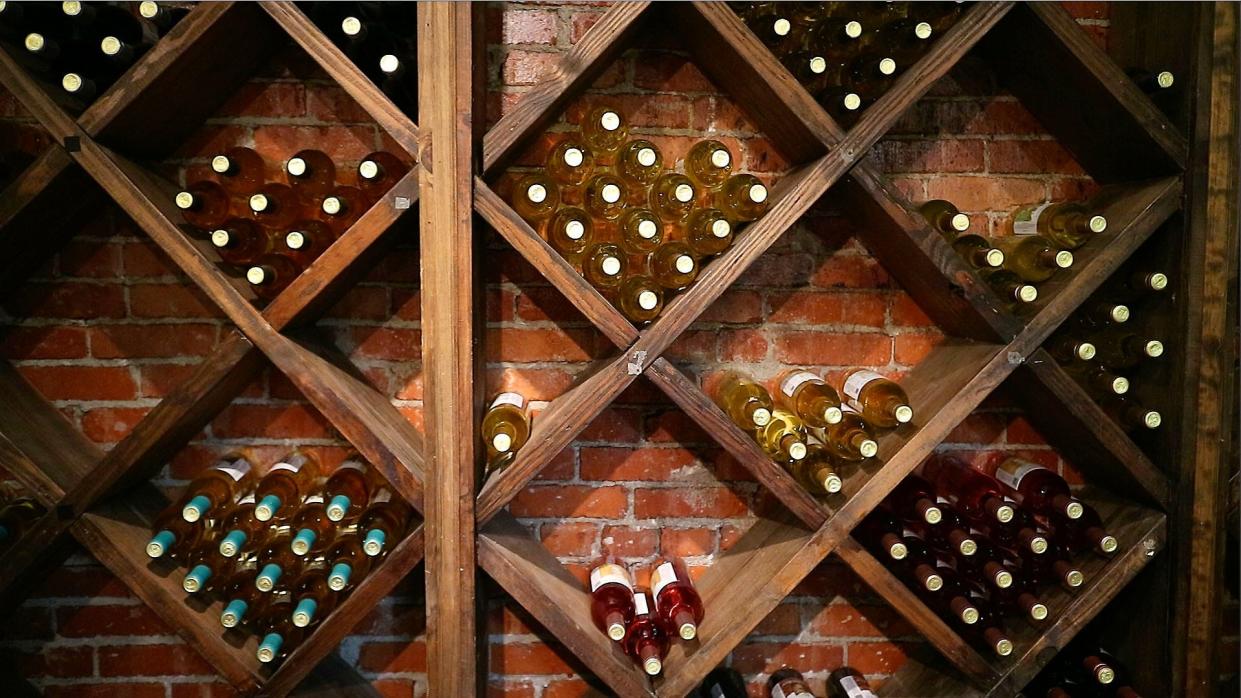
"Most patrons want to know 'What do you think of this wine, or how does this pair with this, or how's the finish, is it dry?'" Leewright said.
Poulin said this will create a change for all staff in the way they prepare for service, and it will ultimately take away from both the guest experience and Oklahoma's continued growth as a food and beverage destination.
“Everybody has different flavor profiles. You could taste chocolate, I could taste tannins, someone else could taste fruit and I could taste stone, and it's great to be able to talk collectively amongst your staff to help build what we call in the industry a collective palette for your program and then we can all talk about these great nuances,” Poulin said.
“We've had some unbelievable national recognition in Tulsa, in Oklahoma City, I believe there's a few other places just outside of those metro areas that we've had some unbelievable recognition for, and why are we going to stop ourselves from continuing to grow our community in a beautiful food and beverage scene in that manner? It's frustrating for a lot of us that really want to push our culinary and beverage, further, to the next level.”
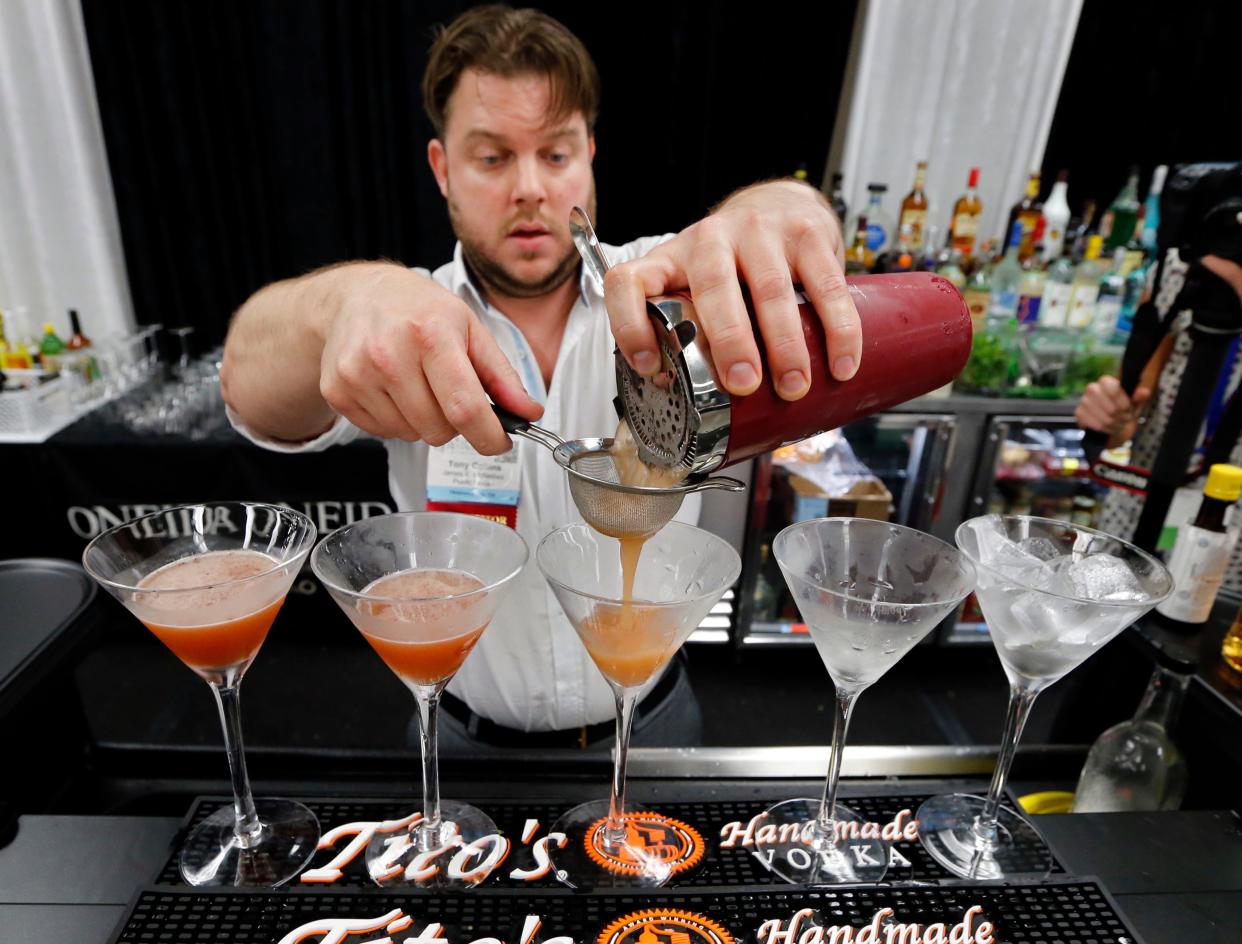
Carter said ABLE has "no problem at all with industry educating employees on wine and food service," but reiterated that it could not occur while the employees were on duty.
“I think there are a number of issues that businesses would probably be concerned with in educating their employees either before the shift or completely unrelated to the shift because they wouldn't want their employees to get in a car and drive home after consuming, however much might be offered at this tasting,” Carter said. “They could not be on duty, which is what the statute says. You know, if they're going to conduct that off duty, then that is their prerogative, but they cannot have licensees who are on duty and taking those.”
Is there a solution in sight for restaurants and bars?
Carter said ABLE has "every intention" of working with the Oklahoma Restaurant Association and others in the industry to find solutions.
“There are a number of ways that we could address this with statutory language that would clarify this. I mean, I think that's absolutely doable,” Carter said. “We could tweak the statutory definition of on duty or we could provide a special part for this, but our main concern is licensees who are consuming alcoholic beverages, which are both deadly and addictive, while they're on duty. That's our public safety mandate and we cannot sit idly by and watch that happen."
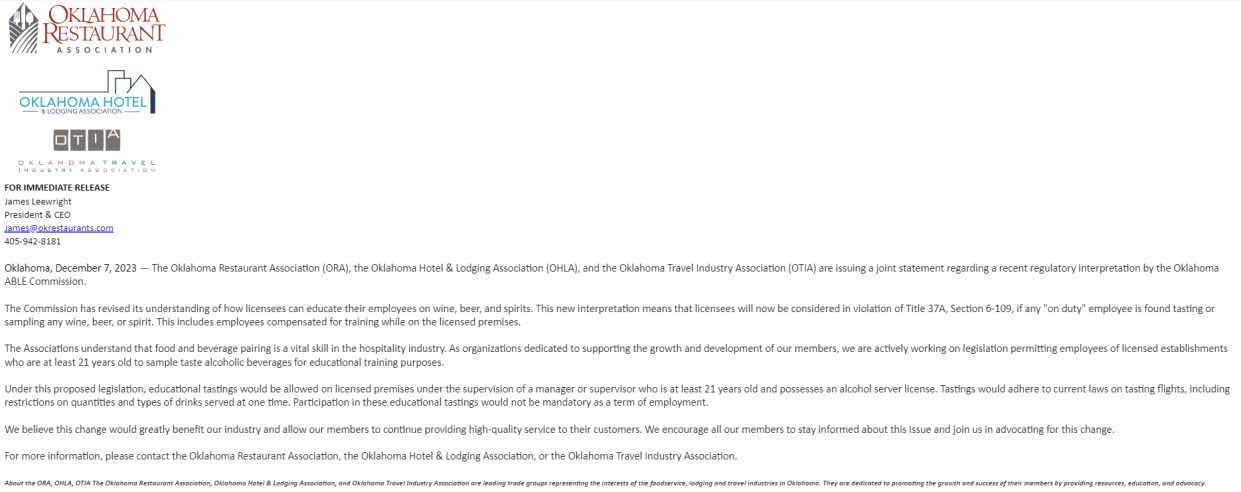
Poulin said he and others in the industry are left scratching their heads and wondering what comes next.
"A big thing that I think that I'm getting back for feedback from my contacts and in my circles and I also have the same questions is 'What can we do and what do we need to do to fix this?'" Poulin said. "Because there's no way that — why are we going to try to go back 15 years, why are we going to try to go back 20 years? — we're moving forward. Why are we stopping? Let's continue to move forward."
Leewright said the Oklahoma Restaurant Association, along with the Oklahoma Hotel & Lodging Association (OHLA), and the Oklahoma Travel Industry Association (OTIA) have already come together to file legislation to change the language in Oklahoma's laws to rectify the issue and prevent any further fallout for businesses. That legislation would allow educational tastings on licensed premises for and by those "who are at least 21 years old," without making participation "mandatory as a term of employment," according to a joint statement issued by the associations.
This article originally appeared on Oklahoman: Can bartenders taste test drinks in Oklahoma? Restaurants, ABLE concerned






